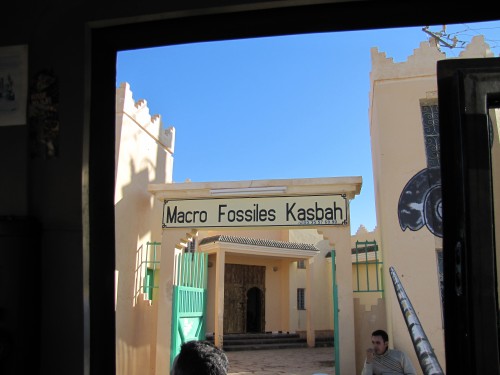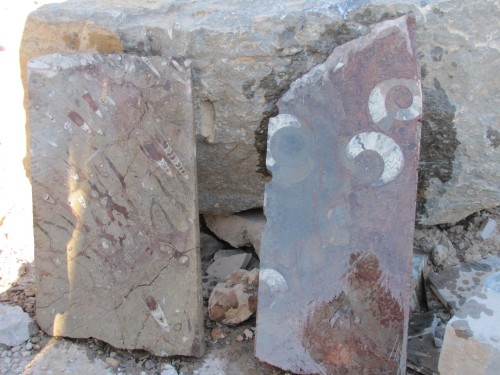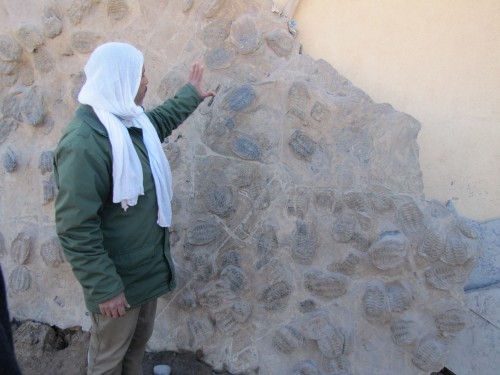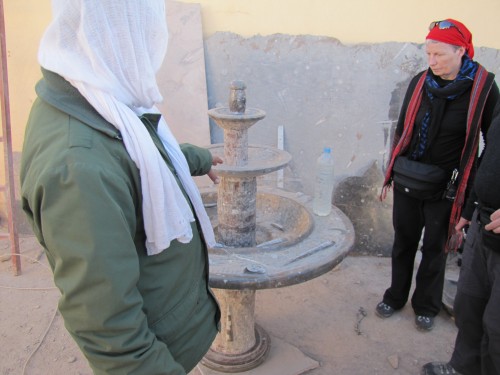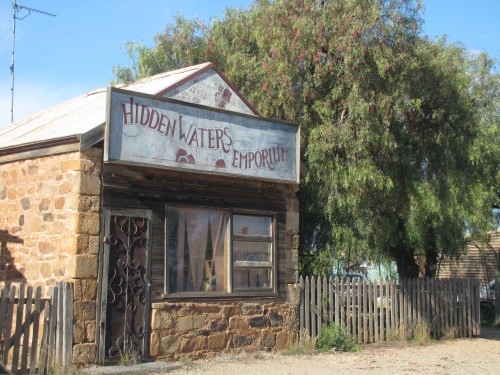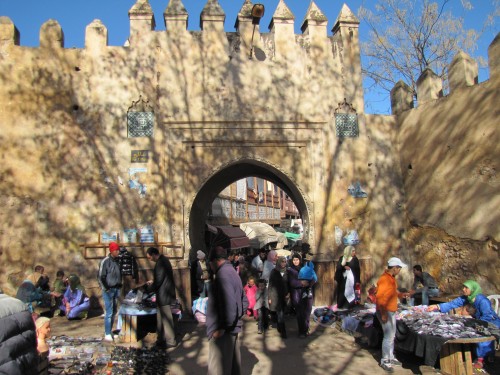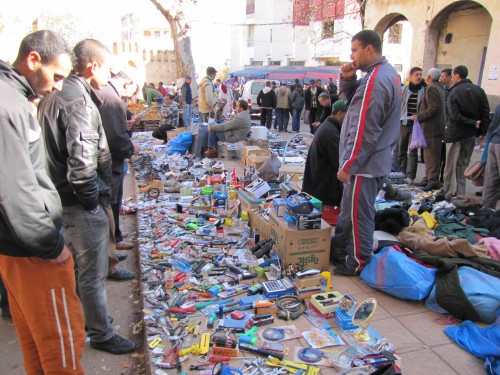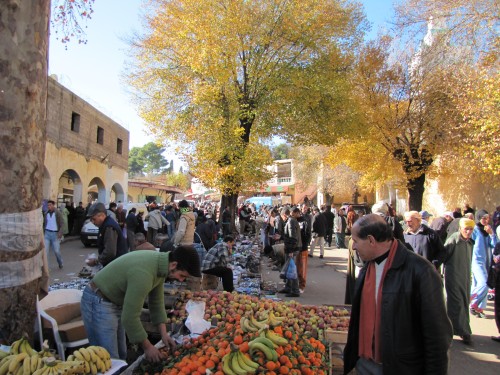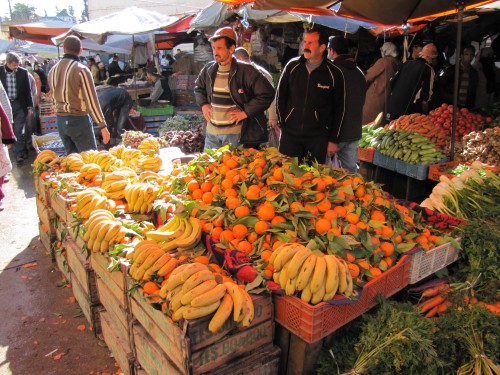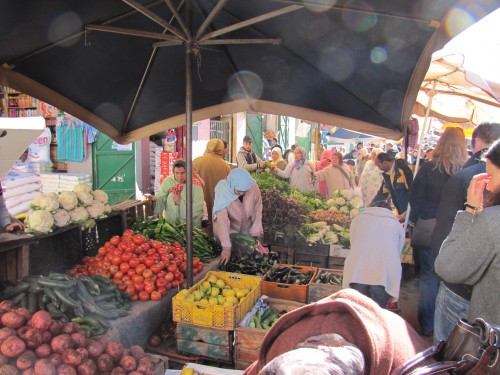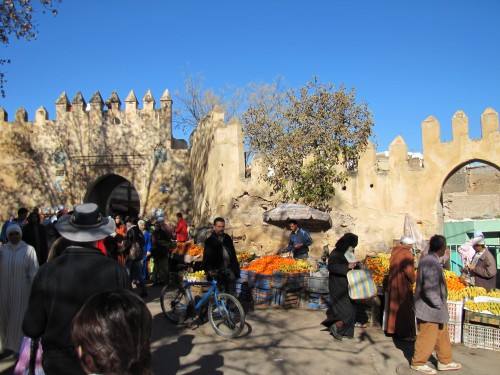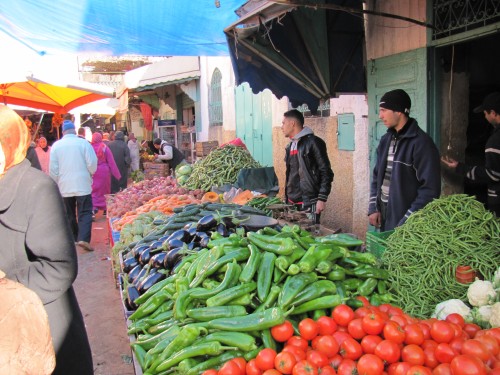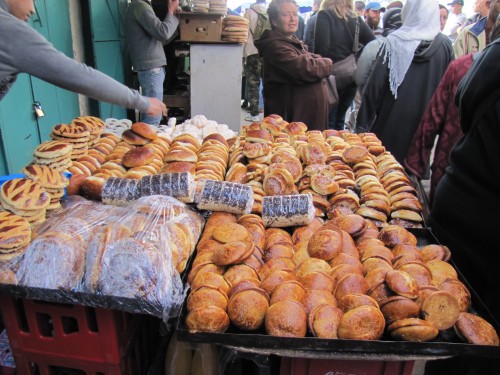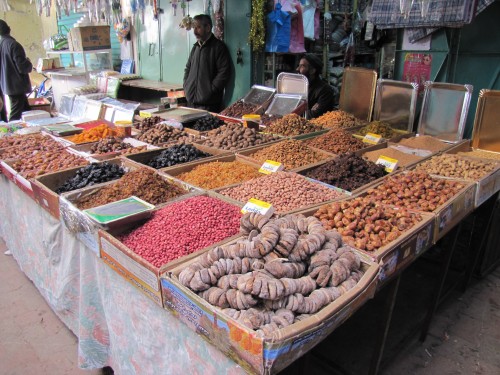Fossil factory at Erfoud Morocco
Our next stop on our tour of Morocco was at one of the fossil outlets in Erfoud. There appears to be an abundance of a range of different fossils to be found in the nearby desert. The factory and obligatory retail outlet we went through was the Macro Fossiles Kasbah as shown in today’s photos.
On our guided tour I found out that there are millions of fossils in the area, mostly trilobites but also a variety of other fossilised creatures. This factory finds the fossils, cuts them into various shapes and polishes them ready for sale in the adjoining shop. The range of items for sale is amazing. It includes small items like key rings, plates, bowls and dishes, wah basins, fountains, tables and much more.
I would love to have bought one of the wonderfully polished tables, but the cost of buying it would have blown our holiday budget. The cost of shipping it to Australia would have added greatly to the cost. I could but dream. (I also had the same feelings in the ceramic factory in Fes – see here for photos.)
I will show more photos of this factory and the shop in coming days.
Further reading:
- Website of Macro Fossiles Kasbah Please note that this website is not in English
- Website Achour Fossils Erfoud An excellent website in English with many photos, a short video and instructions for ordering.
Hidden Waters Emporium, Terowie
In recent days I have been posting photos of some of the old buildings in the historic town of Terowie. Terowie is in the mid-north of South Australia between Peterborough and Burra and north-east of the Clare Valley. In its heyday it was a bustling railway town and an important service centre for the surrounding rural properties. These days it is a sleepy residential backwater with only a handful of the former businesses still operating.
On our recent drive through the town – one needs to take a detour off the main highway – I took the photo above of the Hidden Waters Emporium. I always smile when I see such a modest building have the title of “emporium”. The word for me conjures up images of very large stores selling a large variety of items, a bit like our department stores of today. It speaks to me of grandiose structures, not tiny buildings like the one shown in the photo above.
The definition of the word can vary depending on which dictionary you consult. Some define it along the lines I have described, while others are content to leave it at describing any store which sells a variety of items. I know nothing of the history of this particular “emporium” except that there are several references online to it being a second-hand shop in the past. One of those references is here in the National Library of Australia. The entry there shows a photo of the shop in operation as a second-hand outlet.
Sadly, this fascinating building seems to be well past its prime and is only used as a storage place for some junk.
Update: Since writing this article I have discovered where the “Hidden Waters” name is derived.
Terowie, whose name is derived from a local Aboriginal word meaning ‘hidden water’ was originally a watering pause on a stock route from the north-east of South Australia.
Market day in the village of Sefrou, Morocco
Towns like Sefrou near Fes in Morocco become bustling centres of trade on market days. Farmers from the surrounding districts bring in their produce for sale, setting up on stalls in the squares, lanes and streets. The chaotic arrangement seems to work very effectively and the range of items on sale is enormous: vegetables such as tomatoes, potatoes, cauliflowers, carrots, onions, cucumbers, pumpkins, capsicans, and fruit like mandarins, oranges, bananas, dates, apples and a range of spices and nuts.
Then, like in the photo below, some vendors offer an enormous range of items: pens, radios, clothing, key rings, scarves, DVDs, cassettes, tools – the list goes on and on. It is a fascinating scene.
Farmers’ markets in the village of Sefrou, Morocco
Over recent days I have been showing photos taken on our visit to the village of Sefrou about 30km from the city of Fes in Morocco. We visited on the day they had the farmers’ markets in the streets and lanes of the village. Today I share a few more photos.
Photos of market day in Sefrou, Morocco
On our visit to the village of Sefrou we were lucky to be there on market day. Sefrou is about 30km from the city of Fes. The farmers from the surrounding countryside bring in their produce and set up stalls in the streets and lane ways. It brings the town to life and the hustling crowds flock to buy their fruit, vegetables and other goodies – like the pastries shown below.
We couldn’t resist and bought some delicious bananas and mandarins.
On reflection, these markets are not so different to what we have here in Australia. Certainly, there is much variation in some of the produce for sale – no local farmers grow bananas or dates here in South Australia, for example. But they bring what they grow and local people flock to these events knowing that they are buying good quality food produced locally. It’s a growing trend here in Australia, but I’d say that in places like Sefrou it has been a tradition for many years, perhaps even centuries.
